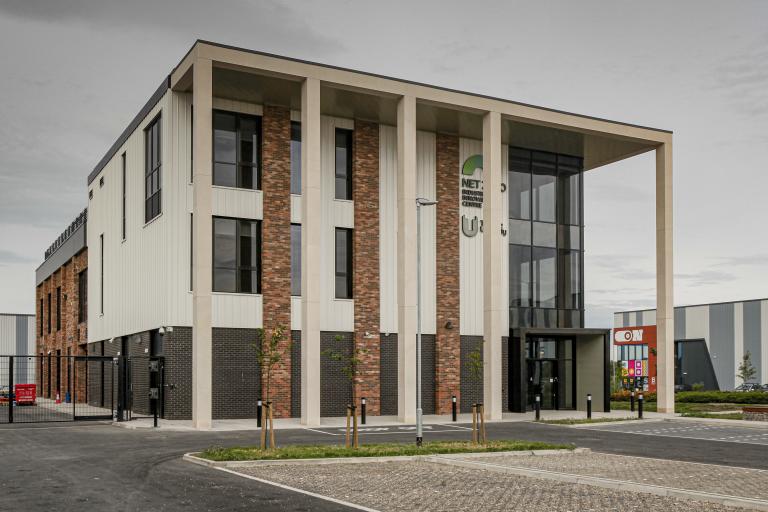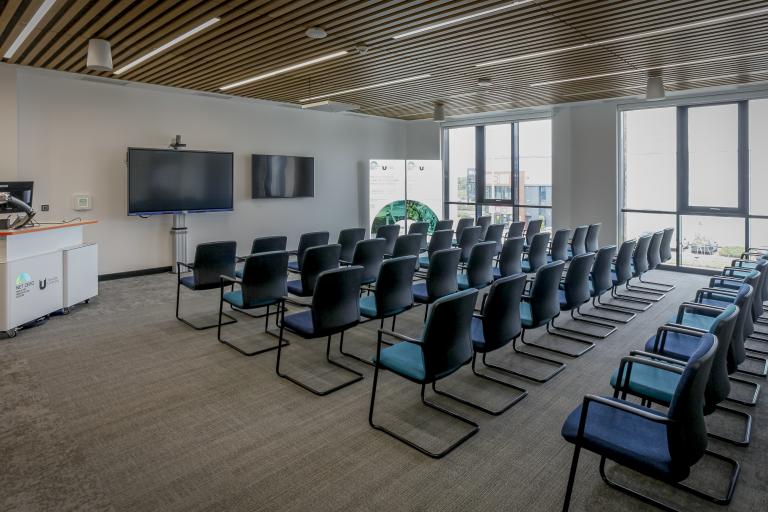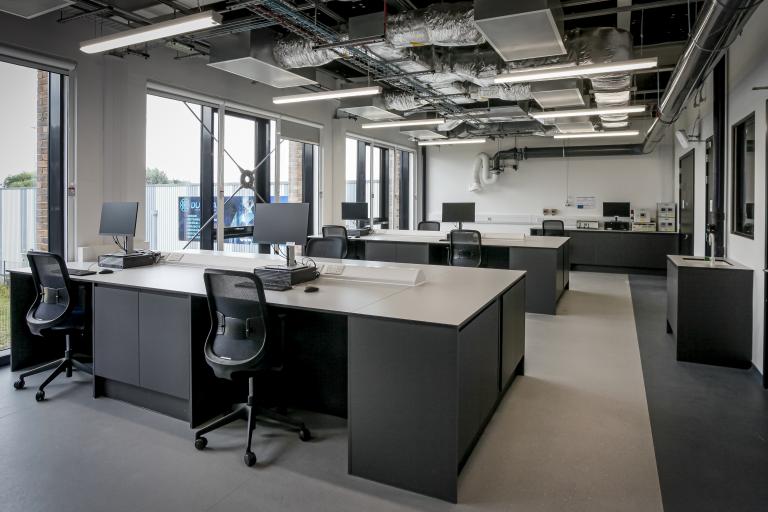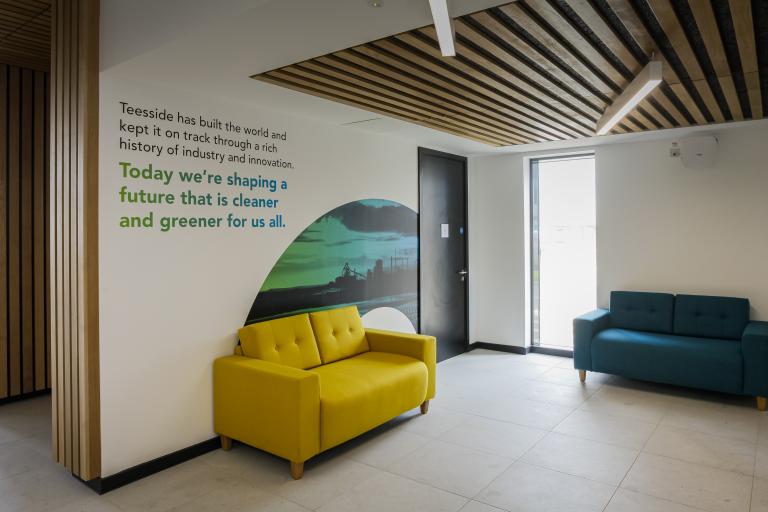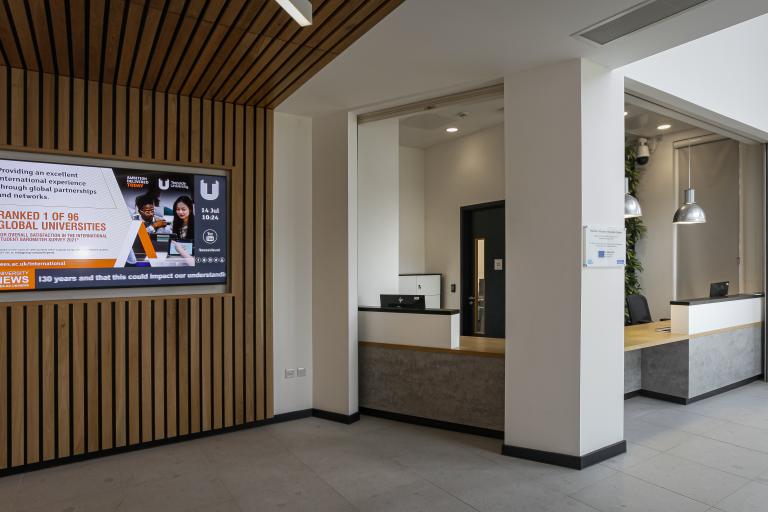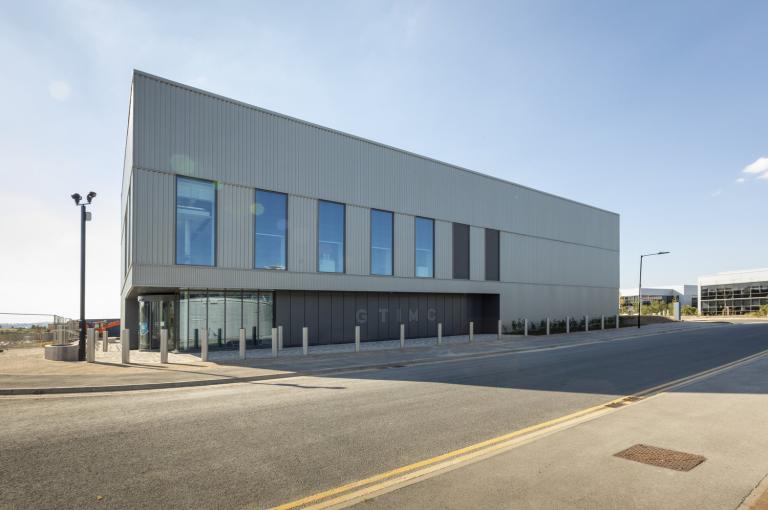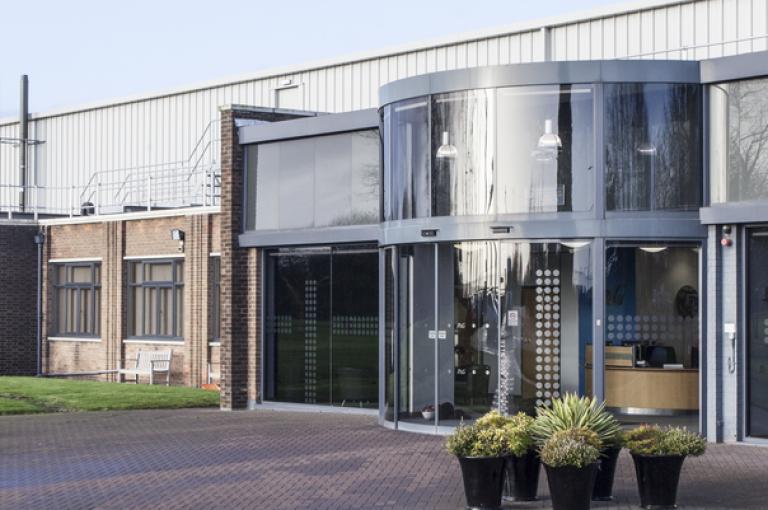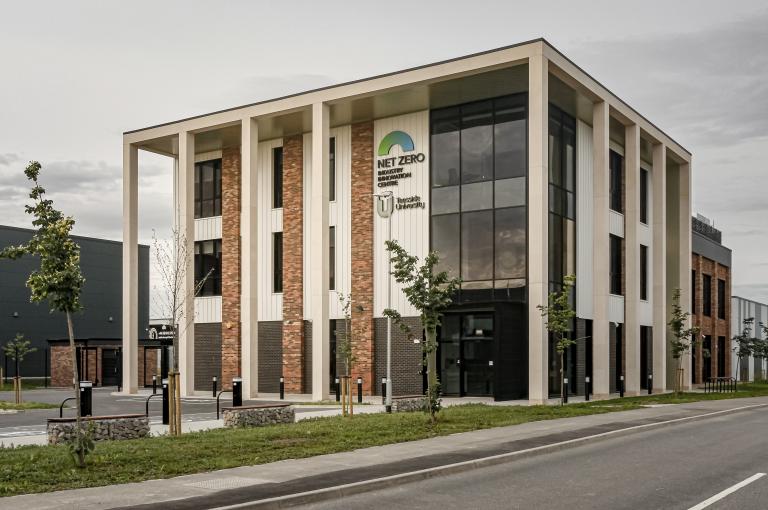
Net Zero Industry Innovation Centre, Teesside
Get in touch

Summary
Committing to a carbon neutral future with Teesside University’s ground-breaking development
The ambitious Net Zero Industry Innovation Centre (NZIIC) positions Teesside at the very heart of the UK’s green industrial revolution.
A new home for important planet-saving environmental research and development has been delivered by Robertson.
A hub for industrial decarbonisation and net zero technologies, the NZIIC will become pivotal to innovation and creativity in the fields of industrial decarbonisation, sustainability, and the circular economy.
The NZIIC includes laboratories and support spaces that will allow industry and academia to work together to research, develop and demonstrate new approaches to tackling the impact of waste and pollution on the environment.
BREEAM
outstanding rating
650 kg CO2e / m2
carbon to be offset
99.98%
diversion of waste from landfill during construction
Located at the Tees Valley Net Zero Innovation Hub, which is set to be a national centre of excellence, the £13.1m three-floor building will also support the drive for clean energy.
The centre will focus on four core areas:
- Hydrogen and Decarbonisation: adapting hydrogen applications, optimising industrial processes and developing alternatives to current chemicals and overcoming the challenges of hydrogen storage and carbon capture.
- Circular Economy: investigating applications of thermal and chemical processing and recycling to optimise, reduce costs and bring new technology to market.
- Intelligent Energy and Industrial Systems: supporting product and service innovation to drive forward the smart energy and smart grid agenda.
- Digital Modelling and Simulation: providing support for maintenance and operation of industrial assets, including virtual and artificial reality and remote operations.
The Net Zero Industry Innovation Centre
Modern methods of construction
As the key aims of the project were to deliver a net zero, low embodied carbon and BREEAM 'outstanding' certified building, carbon reduction was at the very heart of our design and material choices.
The design team met weekly with a core focus on how to accommodate these important targets.
And to guarantee the build process matched the net zero ethos of the centre itself, we used state-of-the-art techniques and materials to minimise the carbon footprint, incorporating the deployment of new technologies and a zero-waste commitment.
To drive down emissions during construction, a low cement concrete mix was used throughout the project. Concrete has very high embodied carbon emissions and our bespoke mixture contained 20 per cent less cement. All concrete on the project had to be delivered from a batching plant located within 10km of the site, further cutting emissions.
100% recycled steel, produced in an electric arc furnace needed rather than a traditional gas or coal-fired furnace, was also utilised further improving the project's embodied carbon level.
A recycled and further recyclable plastic panelling system has been used instead of traditional timber and metal construction site perimeter hoarding. Combining a scaffold tube and clip mechanism to allow the hoarding to be dismantled on project completion and reused, the hoarding was in keeping with the sustainable principles of the building.
And instead of diesel engines, the site had a HVO (Hydrotreated vegetable oil) policy in place for all generators and plant fuels used by Robertson and our supply chain. HVO is synthesised from 100 per cent renewable raw materials such as vegetable oils, animal oils and fats, which reduces net CO2 greenhouse gas emissions by as much as 90 per cent.
All these modifications supported our successful efforts to deliver Teesside University's Net Zero building.
Creating an innovation ecosystem
This important facility is now growing net zero capabilities and opportunities, creating hundreds more clean energy jobs, and strengthening the existing innovation ecosystem through provision of specialist facilities and support.
The NZIIC is the latest project in Teesside University's Campus Masterplan, supporting the UK's green industrial revolution and developing solutions for the benefit of our planet.
Constructing Excellence National Awards 2024
The Net Zero Innovation Centre was highly commended at the Constructing Excellence National Awards 2024, in the Climate Action category.

